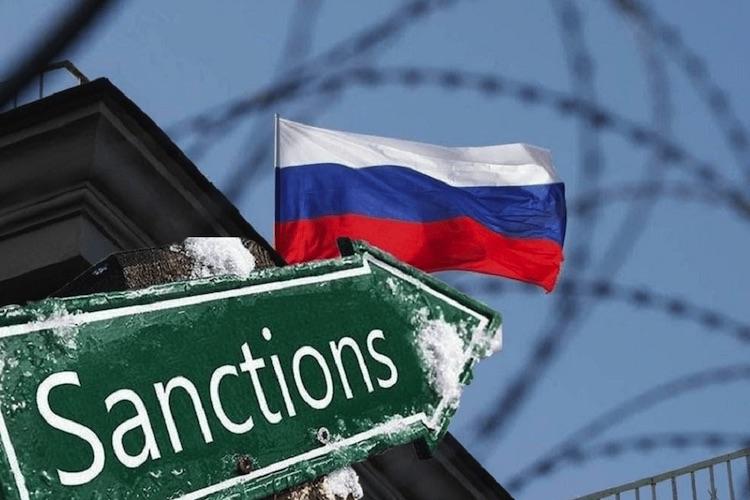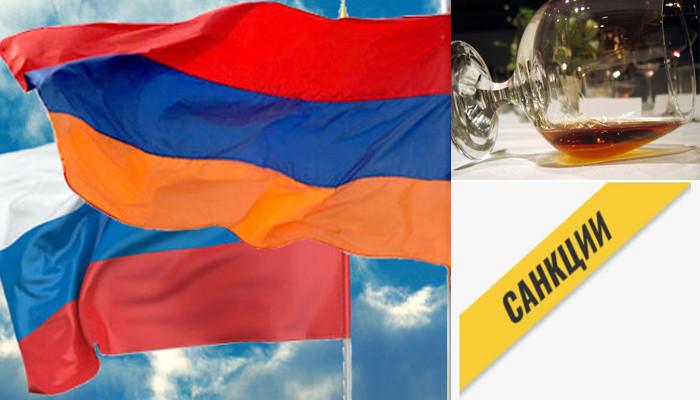Despite Armenia's drift toward West, it's still Russia's backdoor to circumvent sanctions Empty rhetoric to cover an itch for money
The overleaning of the Armenian political establishment towards the West observed during 2023, numerous statements of the head of the government Nikol Pashinyan and members of his team about the advantages of integration with the European Union and the United States, in fact, turned out to be unsupported rhetoric. The actual futility of such a course is evidenced by Armenia's dependence on trade and economic ties with Russia, which, by the way, owns its main energy and infrastructure assets. Judging by the latest data of the Armenian Central Bank, Ministry of Finance and Ministry of Economy, today, as well as in 2022, three-quarters of Armenia's economic growth is based on re-exports to Russia, as well as banking and tourism services to Russian re-locants.
The constantly growing assertiveness of the European Union and the United States towards Armenia, which has been observed over the last two years, is taking place at a time when Armenian-Russian political relations are cooling down significantly. Brussels and Washington support by all means initiatives aimed at Yerevan's withdrawal from Russian integration projects, and the Armenian side demonstrates its readiness for such steps with its provocative actions towards the Kremlin. To what extent basic prerequisites support these dubious endeavours and whether the Armenian economy is able to overcome its fundamental dependence on business cooperation with the Russian Federation and, in general, on trade relations with the countries of the Eurasian Economic Union (EAEU)?
The reality of the Armenian economic system has been testifying for many years to the tangible dependence of the "apricot republic" on Russian investors, suppliers and trade counterparties. Russia has traditionally been the largest investor in the Armenian economy: about 40 per cent of foreign direct investment (FDI) is Russian, where the total amount of investments exceeds $2 billion. Thus, Russian business and natural monopolies control such an important sector of the Armenian economy as energy: Armenia's main and distribution gas networks belong to Gazprom, the main gas supplier at favourable tariffs. Moreover, gas supplies from Iran are also controlled by Gazprom, which has built a gas pipeline to Iran, halving the capacity of the pipeline to avoid future competition with Russian gas.
Things are not better in the power sector either: since June 2006, 100 per cent of "Electric Networks of Armenia" CJSC's shares have been acquired by Interenergo B.V., a subsidiary of Inter RAO, and since September 2015, the entire stake in Armenian power grids has been controlled by the Russian group Tashir. In turn, the maintenance of the emergency Metsamor NPP (which provides a third of Armenia's electricity production) and the replacement of its fuel elements are under the full control of the state corporation Rosatom, and due to the characteristics of this outdated nuclear facility, other alternatives are simply impossible.
The critical transport infrastructure of the "country of stones" - the railways - is also fully controlled by South Caucasus Railway (SCR) CJSC, a wholly owned subsidiary of Russian Railways (RZD) JSC. According to the agreement with Russian Railways signed in 2008, the concession management of Armenia's railway transport is for 30 years with the right to prolong it for another 10 years. It is noteworthy that if agreements are reached between Azerbaijan and Armenia regarding the opening of the Zangezur corridor, after the restoration of railway communication, Russian SCR will actually control this road on the territory of Armenia, carrying out technical and organisational management of transportation.
However, the dominance of Russian business in energy and transport is by no means the only factor of Armenia's dependence. The capacious Russian market currently remains the main driver of Armenian foreign trade, keeping the economy of this South Caucasus outsider alive. Armenia's participation in re-exporting foreign products and equipment to Russia, including substation dual-use goods to circumvent US and EU sanctions, has been mentioned in Western and post-Soviet media more than once. Thus, with the unfolding of the Russian-Ukrainian war, exports from Armenia to Russia unexpectedly almost tripled - from $841 million in 2021 to $2.411 billion last year. Obviously, the industrial production of Armenia's stagnating economy is simply unable to provide such a significant volume of products, not to mention agriculture, which has been in decline for the second year in a row.
Most experts explain such a sharp increase in the Armenian-Russian trade turnover, including the share of Armenian exports without any serious economic basis, by only one factor - the re-export of sub-sanctioned or restricted goods for direct sale in the Russian and Belarusian markets through Armenia.

Apparently, the influence of re-export springboard and other speculative factors on the growth of economic indicators of the "country of stones" in 2023 was reaffirmed the day before by Armenian Deputy Finance Minister Vahan Sirunyan, speaking at the session of the Armenian National Assembly's commission on financial-credit and budgetary issues: "Amid the ongoing Russian-Ukrainian conflict, there is a significant inflow of capitals and re-locations to our country, as a result of which an 85 per cent increase in exports from Armenia to the Russian Federation was observed in the three quarters of this year."
The Deputy Minister stressed that the share of re-exports in the total volume of supplies increased by 80.6 per cent, while the products of Armenian producers increased only by 4.4 per cent. Speaking about the influence of the Russian factor on the economy of the republic, Sirunyan noted that during the reporting period, the volumes of transfers from abroad decreased by 50.5 per cent, and only transfers from Russia increased by 27.4 per cent.
The Deputy Minister cited another important fact: for nine months of the current year there was a 48.4 per cent growth of foreign tourists, and, as before, Russian citizens prevailed here, their inflow increased by 29.1 per cent. However, according to a number of Armenian experts, the speculative effect associated with the influx of re-locations did not support the development of the real sector of the economy. On the contrary, it has only led to an increase in prices for renting flats, hotels, transport and services, as well as prices in catering and trade networks. Profits from tourism go to niche segments of the economy, while ordinary citizens of Armenia suffer from the rise in prices. Thus, the prices of air tickets to Armenia have surged by 20-30 per cent compared to last year.
During the session of the same parliamentary committee on financial-credit and budgetary issues, the head of the Central Bank of Armenia Martin Galstyan also cited statistics, according to which Armenian banks provided 80 per cent of their income in 2022 at the expense of non-residents. The share of non-residents in bank income in 2023 is also tangibly high, and only about a quarter of the profit was provided by traditional sources of income, including loans.
It is noteworthy that the re-export of sub-sanctioned goods and equipment to Russia and the provision of various financial and intermediary services by Armenia continues despite repeated critical statements of the US and EU politicians. This is indirectly confirmed by the 50-fold increase in taxes paid to the budget by Armenian companies involved in international freight transport and providing transit or reverse supplies to Russia.
The results of investigations by the media and a number of international profile structures show that in 2022 Armenia increased its imports from the EU and the US by 80 per cent, while at the same time becoming a regional transshipment base for supplies of electronic goods and microchips, computers and peripheral IT equipment, machine tools and industrial equipment, cars and auto parts to the Russian Federation. Thus, in the first half of 2022 Armenian exports to Russia amounted to about $546 million, and in the next six months, after the implementation of the next toughest packages of anti-Russian sanctions, it increased more than threefold - up to $1.860 billion.
Most of the above-mentioned commodity groups belong to dual-use products, and these products without unpacking the containers after registration at the Armenian customs with new consignment documents were reloaded onto trailers and ships bound for Russia. Such suspiciously high foreign trade activity of Armenian business in the Russian direction in 2022 attracted the attention of the relevant structures of the European Union and the United States, and the Armenian government was repeatedly warned at various levels about the threat of imposing secondary sanctions to violators of trade and banking operations with elements of re-export and smuggling.

The fact that secondary sanctions are not imposed on Armenia for violating the collective Western restrictions on trade with Russia is a rhetorical question, given Yerevan's powerful lobbying support in Paris and Washington. However, it is quite obvious that despite the comprehensive political support from the West, Armenia is fully dependent on the level of business ties with Russia and the EAEU countries, and any attempt to unilaterally interrupt these contacts will end in the collapse of the economy of the "country of stones". At one time Nikol Pashinyan and his supporters during the revolution claimed that the erroneous economic policy of the Karabakh clan did not allow diversification of the republic's economy, but during the five years of the "revolutionary" government's rule not only did not succeed in restructuring the geographical orientation of the Armenian economy and trade, but the problems in this sphere also became even more complicated, and the dependence on Russia increased even more.
Even today, Armenian experts predict that the bubbles fuelled by the re-export of sub-sanctioned goods to Russia and the frenzied demand for services in the banking and tourism sectors are evidence of the development of the "Dutch disease" that is destroying the Armenian economy. The emergence of the "Dutch disease" is associated with the rapid growth of exports of one group of goods or services, which eventually leads to a loss of competitiveness in other industries. In the case of Armenia, it is the export of services, primarily financial, trade and intermediary, etc., which, together with the phenomenon of relocation and capital inflow, became the main factor fuelling GDP last year and this year, and resulted in the accompanying strengthening of the national currency.
An overly strengthened dram brings with it all the consequences of the "Dutch disease": damage to companies exporting goods (especially agricultural products) or services, the closure of smaller and weaker producers due to a glut of imports.
Excess demand puts pressure on the consumer market and the real estate sector, creating imbalances and deficits, and provoking unjustified price increases. Armenia's tiny market is unable to transform the funds coming from re-exports into the real economy, and the sharply increased currency flow, instead of spinning the hubs of the water wheel, will bring down the dam itself.








